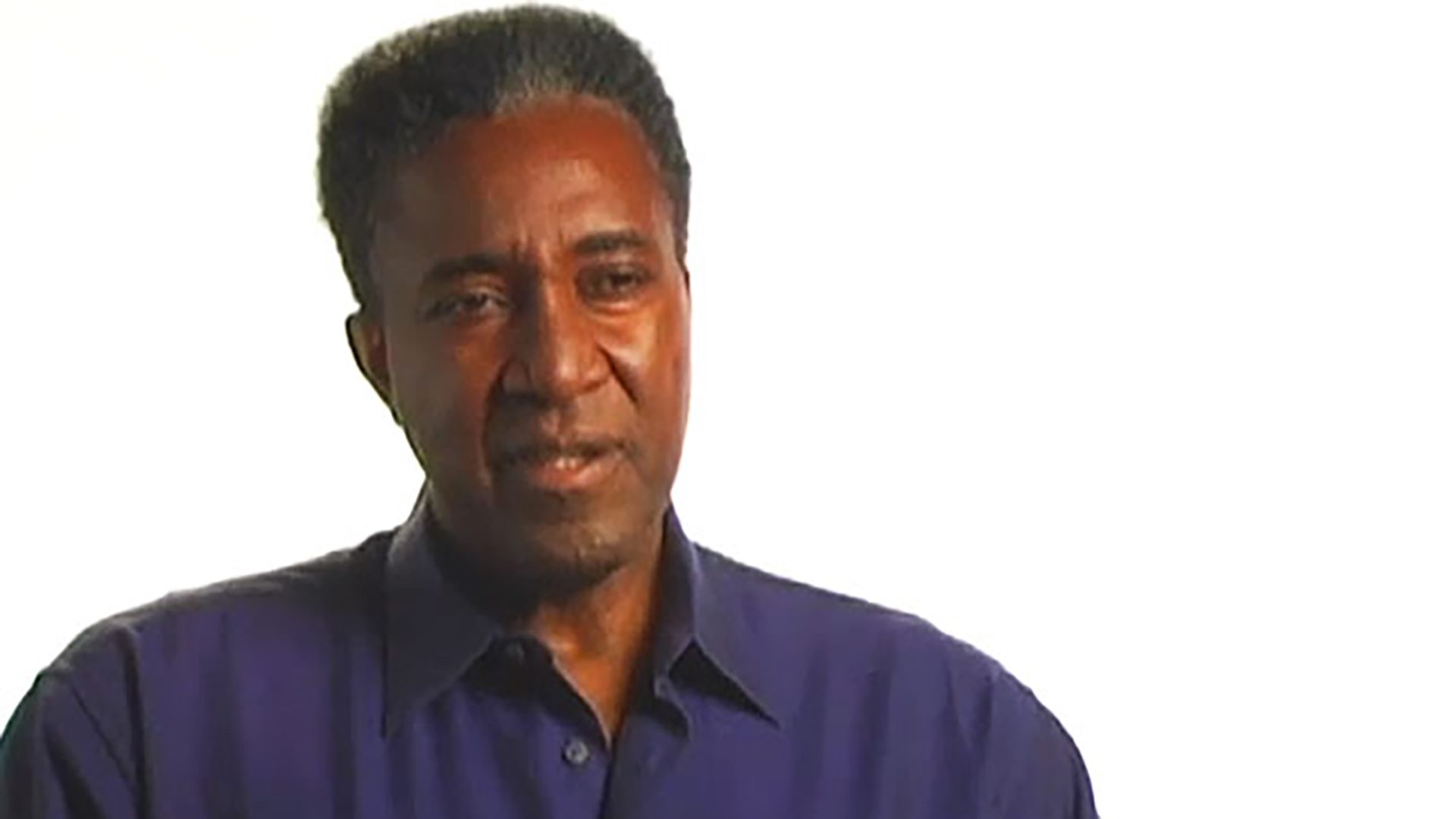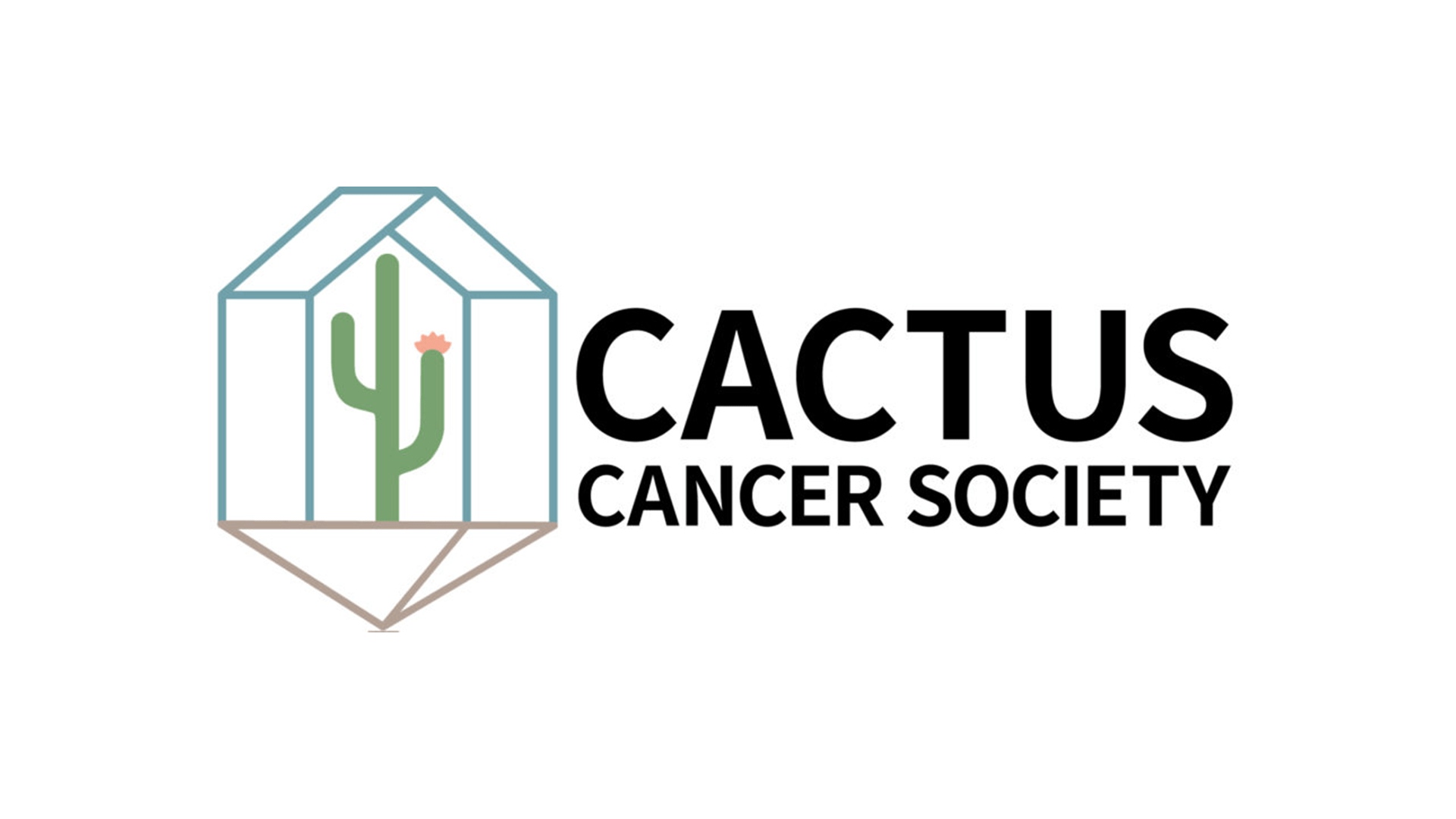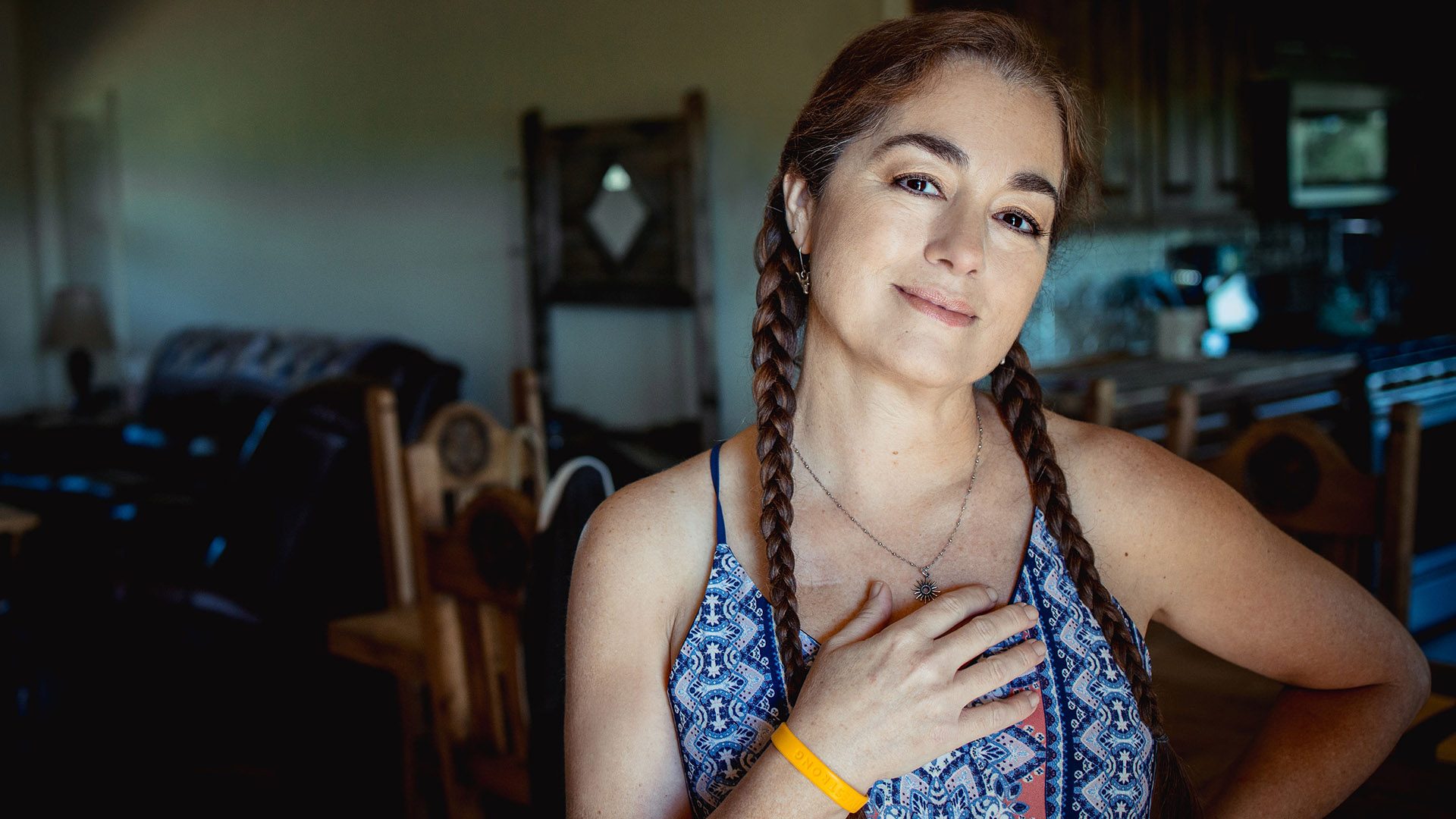Survivor Interview – Matthews B.
Matthews, a hairy cell leukemia survivor, talks about receiving a stem cell transplant, setting priorities in his life after cancer treatment, and spirituality.

I became a cancer survivor in 1996 when I was diagnosed with hairy cell leukemia.
I was an avid basketball player then. I was being bruised very easy, and I was very anemic, very weak. I worked out three or four times a week, but I knew something was wrong, because I couldn’t play anymore. I went to the doctor, and they started a series of tests. After the series of tests, they asked that I have a sonogram. At the very first sight, they thought it might be sickle cell anemia, but my age and everything precluded that, so they recommended an oncologist. After that, they did some tests and did a history. A couple of weeks later, the bone marrow test revealed that I had hairy cell leukemia.
I went to a number of other doctors for other opinions. I also did an enormous amount of research and study on the disease itself to determine whether it was a curable disease, even though they had told me. I had to sustain that within my own thinking to get ready to fight. The other opinions substantiated that it was hairy cell leukemia. Within three weeks after the other opinions, we decided to go with the therapy. I took a therapy called 2CdA, which was an intravenous chemotherapy on an outpatient basis. I was treated for only about seven days.
Once the treatment was completed, I was virtually cured. I continued to come to the doctor and everything was working out fine, and then my numbers started to get lower and lower. They had another form of treatment. I believe it was called Rituxan. I took that, and it really didn’t serve me well. So from then on, I had a multitude of treatments over the next five to six years. I was seeing the doctor regularly and the numbers were not doing very well. Hairy cell leukemia is mainly in the bone and in the spleen. I had the spleen removed in 2001.
I had a stem cell transplant on July 4, 2003. It truly was my Independence Day. My donor was one of my brothers. It was a remarkable experience to be able to call upon your family and to have siblings available to even do the testing. But I was truly blessed to have a brother who was willing to do it. About the third day, some complications started to occur. I started to have extraordinary chills. I had a very high temperature. This must have gone on for about three to five days. My counts were very low, and everybody was watching very carefully. Then one day, boom! My counts were good. And since that very day, there has not been one complication. Not at all. It’s been absolutely great. I was very determined to follow the instructions as carefully as I could. I made sure I got plenty of rest. I made sure I ate properly, because when I was released, I was on a diet for 100 days — no fresh vegetables, no fresh fruits. Everything had to be cooked very well.
The neuropathy began during the first few days I was in the hospital. I noticed that my feet felt like there were pins sticking in them, and they were always cold. My feet were very hard and didn’t have a lot of feeling. My feet get very cold now, and there isn’t very good circulation there. Sometimes if I stand on my feet for long periods of time or get in cramped situations, my feet will swell. But the neuropathy is very persistent. It stays there. It’s really the only remembrance of the disease. But it basically came from the chemotherapy that I took along with the radiation. I believe it killed some of the nerve endings there. It might completely go away or it might be just something I have to live with forever. Interestingly enough, there are times when I don’t have any reminders that it’s there, and then sometimes I can feel it often. So I sleep with my feet somewhat elevated as much as I can. It’s there, but it’s not really critical to me at this point. I think the most important part of the process is that I’m alive and the stem cell transplant worked beautifully. I’m very happy and blessed and pleased about that.
I am perfectly healthy. I think the last time I visited the doctor for my checkup was about two weeks ago. I was told that there is no leukemia anywhere in my system, other than perhaps just the residual amount that might be there. The transplant had engrafted itself to about 97%, which means 97% of my brother’s bone marrow and about 3% of mine is functioning. So the new has begun and the old is virtually out.
I don’t relate every tick, scratch or hurt to cancer. To me, it has no association. Things occur at stages of your life. If I feel a little bit of pain, I don’t rush to judgment and say, “I wonder if the leukemia is coming back.” It never bothers me. I take it in stride. I can do things that I didn’t believe that I could do. Now I can do these things. I have great endurance. I can walk. I can shoot baskets. I can run. I can do many of the things that I once did. I suppose that it affects some differently, but I know where my limits are. I make certain that I use the steps on the ladder now, instead of jumping off of the step ladder. Things that you normally used to do without thought, now I think about it before I do it. I think those are the things that help preserve your life, free of injuries and other complications that might arise.
I’ve found a great deal of compassion in that process of healing. As a matter of fact, I thought the experience has done me wonders. It has allowed me to slow down and allow things to come in life that are important in the real sense of things. I don’t want my life to be crowded as it once was, where there was this competitive nature to drive and drive and forget about some of these other precious joys of life. With that in mind, I wanted to stay focused where I would be able to meet those things that come about through kindness and goodness and loving care.
I was always very spiritual and with a high degree of substance to my faith. But I did have a remarkable experience while in the hospital. During my illness, I had the presence of an angel that came and visited me. When this angel came, it never said a word. It showed up, and I could feel that it was there to oversee and protect me, but it did not interfere with my thinking or my healing. Just to lend a support to me. As the angel watched over me every day, never saying a word, it gave me comfort. I started to feel better, and the angel seemingly started to come closer to me. As it came closer, I began to heal more and more, and eventually, it just came and merged itself right into me. It was like this new birth, which allowed me to see things totally different and know that the old had gone and the new had begun. Now, this is in addition to the wonderful, wonderful medical attention that I was getting. The staff was sensational and very thorough. So with the combination of the technology of medicine and the great care and the spirituality, there was nothing left for me to do but to enjoy the presence of the spirit and always know that it is with me daily everywhere I go. My faith and spirituality permeate every second of the day with me. It is a very important role for me now.
This is a very serious disease, and you must stay focused. You must believe that you can defeat it. Have faith. Believe that there are people like me and many others who really can offer something where there might be some desire to have things to look forward to. I want to see my grandchildren graduate from high school, graduate from college, eventually get married, and have children. I want all of those things. I asked for those things. And now with my life being where it is and healthy again, I can achieve those things. So don’t give up. Stay with it.
Livestrong means never turning off my mind to ways to improve my living condition. I don’t consider it as an individual victory. This victory is for anyone who might have that catastrophic event in their life. And it can happen to me. It can happen to you. I think being highly competitive and once being an athlete, you don’t believe these things are supposed to happen to you, but they do. When they come, you have to have a thought to live righteously, and to make sure that life will go on. We live as joyously as we can, and we live as full as we can, and we keep living every moment.
My name is Matthews Brown, and I am an eight-year survivor of hairy cell leukemia.

